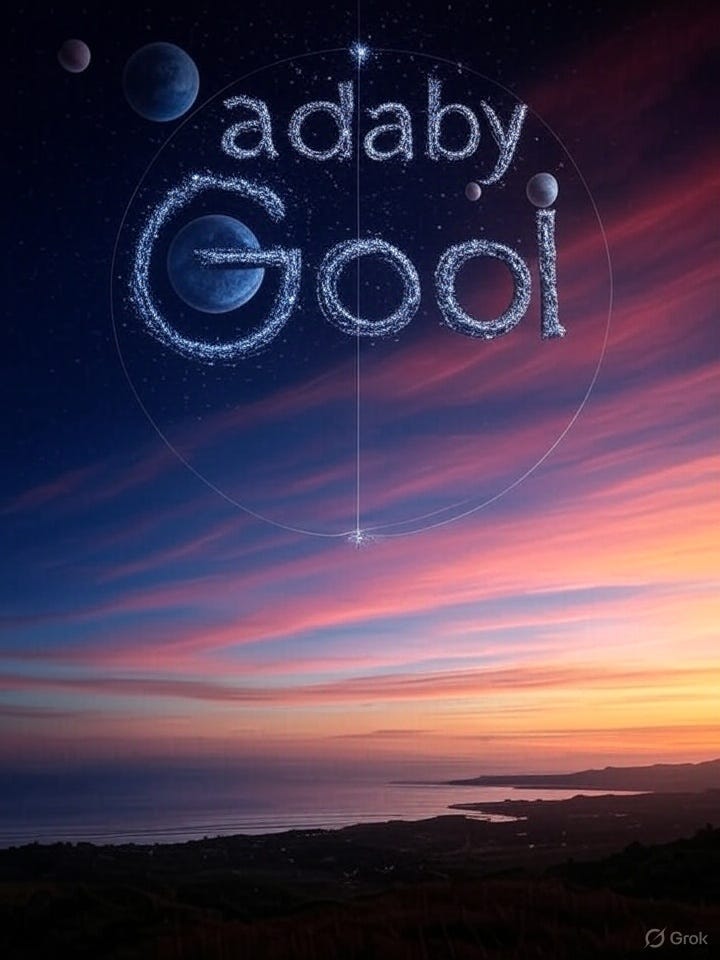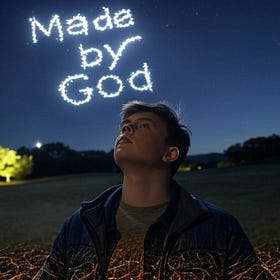The " 'Made by God' Written in the Sky" Argument Sucks.
STOP IT STOP IT STOP IT
The "“If you saw Made By God" written in the Sky” argument is as bad as AI art.
Do you have to use Bayes’s theorem to evaluate “Made by God” written in the sky?
No!
Are you thereby forced to believe in God because of some successful Bayesian argument for Theism?
No!
Why?
For all the same reasons you probably should be suspicious of it in other arguments for God in Philosophy of Religion.
The conclusion (and bald assertion) of the “Made by God” argument is:
C: You should believe in God if you saw “Made by God” written in the sky because of Bayesian inference according to the standards of contemporary analytic philosophy of religion.
It is argued that likewise you should then use Bayesian inference according to the standards of contemporary analytic philosophy of religion in all cases of arguments for and against Theism.
However, something is seriously wrong with this argument.
This is usually raised as an argument against skeptics of Bayesian reasoning in arguments like The Fine Tuning argument, and other arguments for Theism.
The claim skeptics reject is:
B: You should apply Bayesian inference according to the standards of contemporary analytic philosophy of religion.
Now, lets evaluate C from the perspective of someone who believes there are problems with Bayesian inference according to the standards of contemporary analytic philosophy of religion. That is, for someone who believes ~B.
Do they believe C?
No!
Why?
They do not believe you should apply Bayesian inference according to the standards of contemporary analytic philosophy of religion, so you should believe in God if you saw “Made by God” written in the sky because of Bayesian inference according to the standards of contemporary analytic philosophy of religion.
What “intuition” does this argument trade on?
A: You should believe in God if you saw “Made by God” written in the sky.
Is it possible to believe A and reject B?
Yes!
Does A entail B?
No!
How is it possible A and ~B?
Possibly: “Wow that’s crazy, I feel incredible, I think I believe in God.
Bayesian “updates” involved?
0
This hand waving “Made by God written in the sky” argument is a thoughtless rhetorical trick used as an n+1 depth response in an NPC dialogue tree to outmanoeuvre skeptics of terrible arguments. It is nothing more than question begging.
That is, what you think about it is entirely the upshot of what you think about FTA and other Bayesian arguments. For reflective and consistent interlocutors, there are no cases where they would use B, given they believe ~B.
There is no need to argue this way.
Stop it.
Long version of this argument with more details:
If you saw "Made by God" Written in The Sky...
In debates about God’s existence it is common to argue from cases where our reasoning is more certain to contested cases where our reasoning is less certain. The specific way that an argument like this is supposed to work can differ depending on the case. Sometimes it might help to establish, by analogy, that an interlocutor has




Good points. I also think its entirely possible to accept B and deny that observing 'Made by Good' in the stars should result in an update for God's existence. The apologist raising this point is just relying on the intuitive notion that we should, which doesn't actually say anything about what kind of Bayesian update should be made based on an actual calculation of priors and likelihoods.
but wait..if you’re not using contemporary analytic Bayesian standards then you won’t be rational in a special magical way independent of your goals, standards, and values. You don’t *actually* want to care about ‘the things you care about’ rather than ‘the things you should care about independent of what you do care about’ do you?